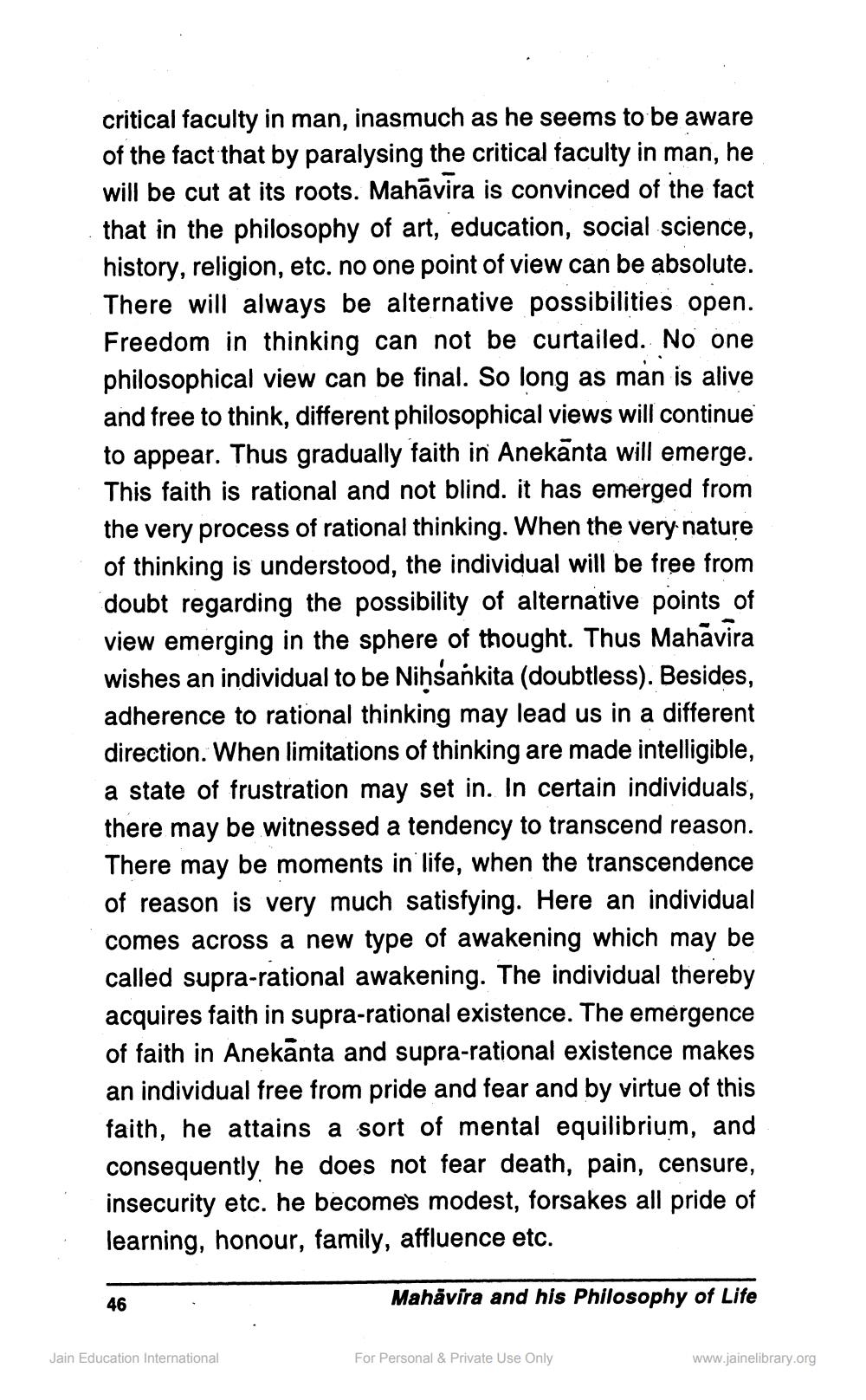________________
critical faculty in man, inasmuch as he seems to be aware of the fact that by paralysing the critical faculty in man, he will be cut at its roots. Mahāvira is convinced of the fact that in the philosophy of art, education, social science, history, religion, etc. no one point of view can be absolute. There will always be alternative possibilities open. Freedom in thinking can not be curtailed. No one philosophical view can be final. So long as man is alive and free to think, different philosophical views will continue to appear. Thus gradually faith in Anekānta will emerge. This faith is rational and not blind. it has emerged from the very process of rational thinking. When the very nature of thinking is understood, the individual will be free from doubt regarding the possibility of alternative points of view emerging in the sphere of thought. Thus Mahavira wishes an individual to be Nihsankita (doubtless). Besides, adherence to rational thinking may lead us in a different direction. When limitations of thinking are made intelligible, a state of frustration may set in. In certain individuals, there may be witnessed a tendency to transcend reason. There may be moments in life, when the transcendence of reason is very much satisfying. Here an individual comes across a new type of awakening which may be called supra-rational awakening. The individual thereby acquires faith in supra-rational existence. The emergence of faith in Anekānta and supra-rational existence makes an individual free from pride and fear and by virtue of this faith, he attains a sort of mental equilibrium, and consequently he does not fear death, pain, censure, insecurity etc. he becomes modest, forsakes all pride of learning, honour, family, affluence etc.
46
Mahavira and his Philosophy of Life
Jain Education International
For Personal & Private Use Only
www.jainelibrary.org




